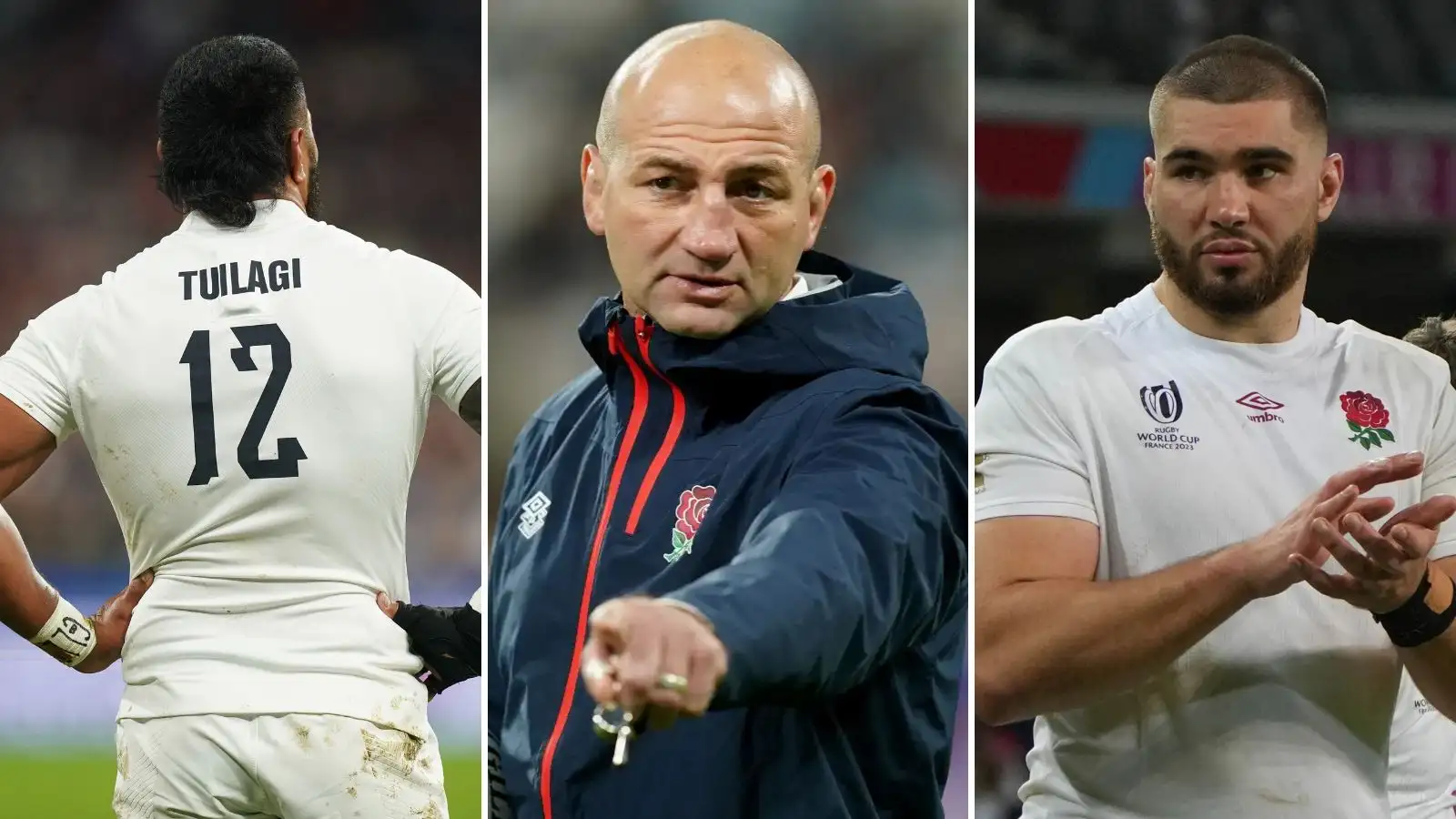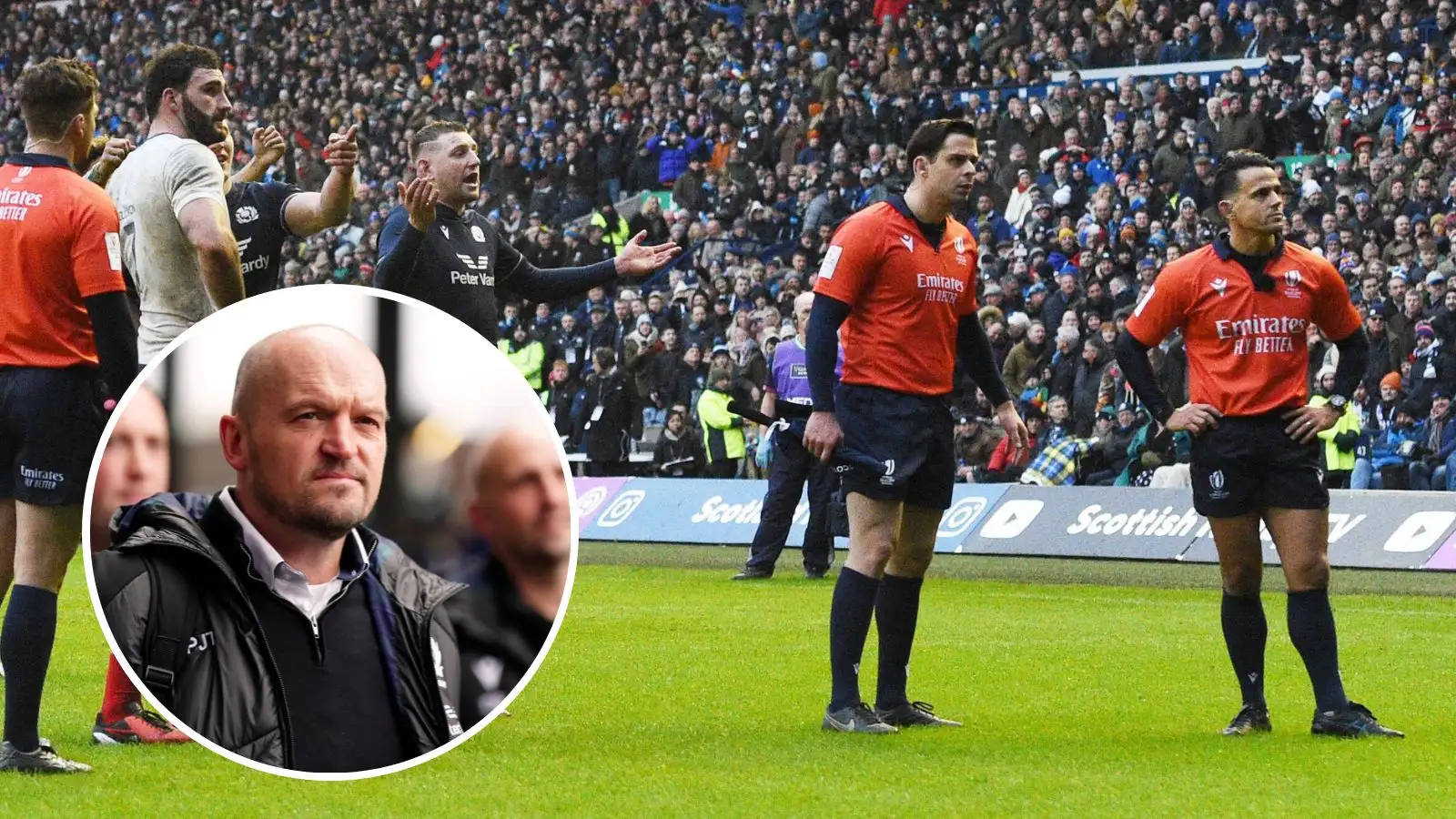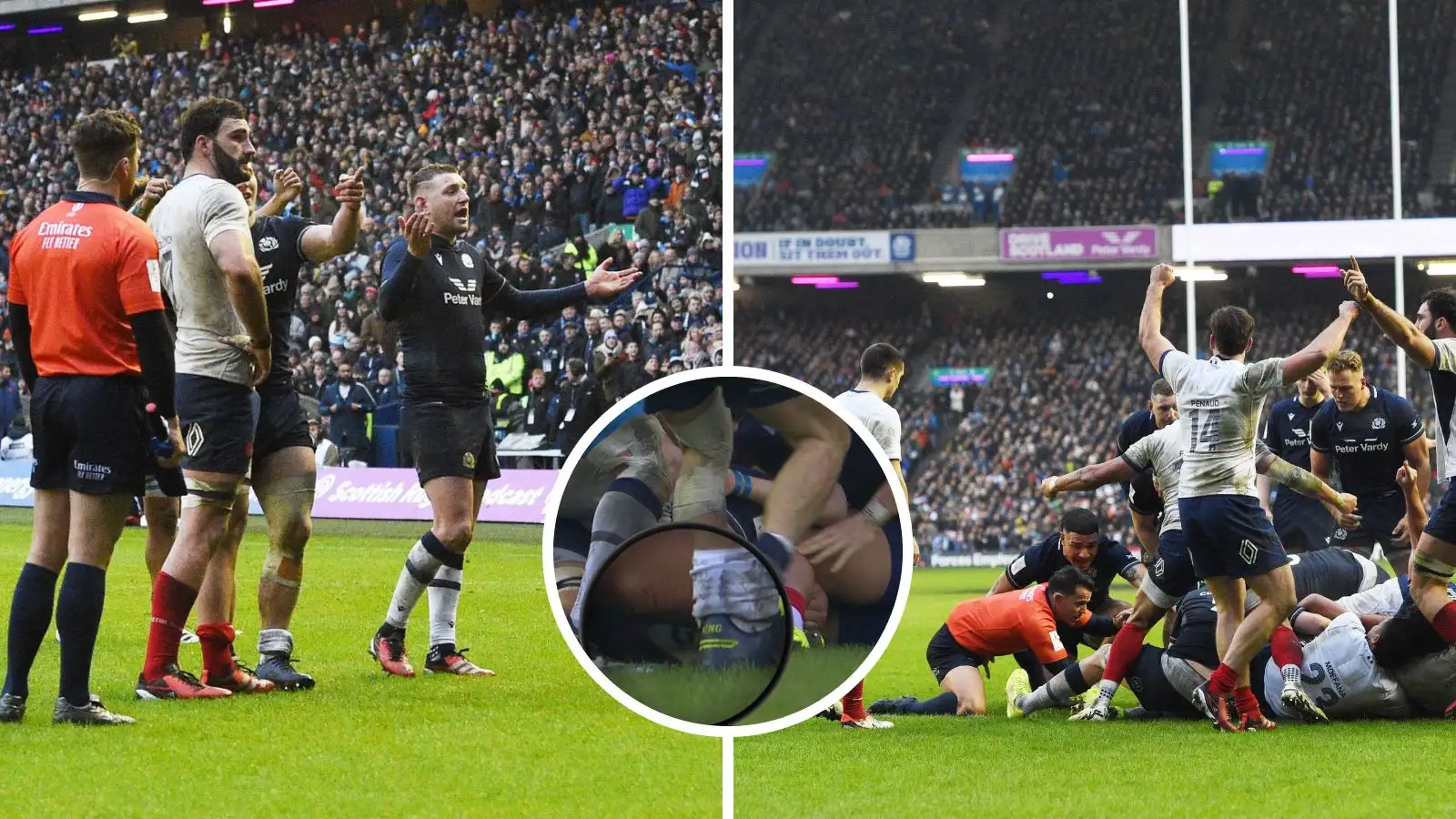Loose Pass: TMO ‘dominance’, Ollie Chessum’s ‘harsh’ sin-binning, ‘peerless Ireland’ and Six Nations team notes

Referee James Doleman, Ireland's Dan Sheehan celebrates a try, France captain Gregory Alldritt, Scotland's Finn Russell and referee Nic Berry during the 2024 Six Nations.
This week, we will mostly be concerning ourselves with the quandary of Ollie Chessum, the dominance of the TMO, the dominance of the PA and the weekly Six Nations team notes…
The Chessum Chronicles
An eventful day for Chessum on Saturday. Having managed to avoid the ultimate verdict after one of those painful ‘trials by TMO’ for his clean-out on Keiron Assiratti, he returned from the yellow card, only to dip into a tackle on Tommy Reffell, receive the latter’s upper arm to the head and have his mouthguard ping a laptop at the side of the pitch to signal he needed an HIA. He did not return.
There are several aspects about this which illustrate just how difficult rugby is currently finding all sorts of things regarding head contact. Many thought Chessum’s initial yellow was remarkably harsh, with more than a few comparing it to the one that Scotland’s Luke Crosbie did not get against Wales last week, after a similar clearout on Sam Costelow.
There were differences. Chessum did turn away from the contact slightly and square his shoulder, far more because of the dynamic of the moment than anything else, but you know what slow-motion can do to official appreciation of a fast dynamic. Crosbie’s clean-out was after a player had already been tackled, and so was at an active ruck; Chessum’s was as a second tackler, with Assiratti falling. Chessum’s biggest mistake was probably getting involved in that at all, as Underhill was surely going to bring Assiratti down anyway. Certainly, it is the sort of moment where the lawmakers are less than sympathetic.
🟨 Ollie Chessum is sent to the sin bin for a high shot on Keiron Assiratti
The right call?#GuinnessSixNations pic.twitter.com/hV2cujQTLT
— ITV Rugby (@ITVRugby) February 10, 2024
Yet the contacts were almost identical, happening at high speed, in a dynamic situation and with players in no way reckless. Yet one gets a yellow card, and the other doesn’t. And here is the greatest irony: Costelow failed an HIA subsequent to Crosbie’s contact, and Assiratti wasn’t even given an HIA.
More irony was to come, as Chessum, barely back on the pitch from the card, dipped into another dynamic moving tackle on Rio Dyer, whose upper arm thundered into the low-standing Chessum’s noggin. Ping went the monitor, off went the lock. Dyer’s actions didn’t need assessment, but the irony in Chessum – already on a yellow card and doubtless considering a low-risk disciplinary approach to any contact – going low into a dynamic tackle featuring more than one body and ending up KO’d himself cannot be lost on anybody.
In the situation he faced, most rugby players not labouring under these head contact protocols and all-seeing slow-motion replays would have stayed upright and sought to catch an advantage from Dyer’s fall. What most would not have done is put their head down as some 200kg of well-trained flesh came rampaging toward them. But, you know, can’t be seen to be reckless.
Chessum was yellow-carded for something he’s been coached to do all his rugby life, quite possibly knocked out of the game because he wanted to avoid doing something almost every rugby player would normally do. And he became the second player whose mouthguard technology brought him off rather than his coach. These are strange times.
How much is too much?
‘Any at all’ will be the answer to this one in Scotland currently, but the weekend certainly put into perspective just how much the TMO is dominating things at the moment. To hear Nic Berry actively talked out of the decision he thought he ought to make, which most could see was all but certainly correct, because of an impossibly high burden of proof threshold was to realise that rugby is becoming a game decided far, far from the field of play at times.
The decision, under the protocols, was correct. You couldn’t see the ball touch the grass (you could be certain, however, that an unseen part of the ball had touched some grass somewhere). You couldn’t definitively overturn Berry’s call of held up – even though Berry himself wanted to believe his own eyes. And if it is not definitive from the techies, it is not at all these days, never mind what the guy employed to facilitate the game on the pitch actually thinks.
It was hoped that the TMO and the tens of hi-res cameras around the ground would be able to definitively rule on everything, but good old rugby chaos has confounded that; indeed, a lot of the time, it has only served to illustrate how much chaos actually goes on on a rugby pitch (ask Chessum). But we really need to give the TMO a cost-benefit analysis: are the benefits of the decisions it does get right or assist worth the cost of the trust broken when it doesn’t? It appears, to many, only to highlight the inconsistency, not negate it.
How loud is too loud?
It was mentioned a couple of times in the build-up to the England-Wales game that Twickenham needed to become a bit more of a cauldron and to generate a little more roar.
Fair, and the crowd certainly played a part on Saturday. What was not needed, however, was the horrible mashed-up dance tunes blaring over the tannoys at every stoppage, every score, which by and large served only to drown the crowd out. You couldn’t even hear yourself sing at times.
Absolutely ask the crowd to get going. Ask a couple of song leaders to whip them up. Make more use of the brass band. But then, for goodness’s sake, let the fans sing when they’re already getting it right.
Six Nations team notes – week two
Ireland: Peerless
Wales: An improving young team could really do without having Ireland next up; having run England and Scotland close, you’d fancy a possible home win against France’s current lot, and especially against Italy. Ireland could damage growing confidence at an important moment.
England: Wins against Italy and a callow Wales prove nothing. But the new-look defence has given the team a solid foundation.
Scotland: Mental weakness is starting to dog this side, which you feel is capable of more.
France: Physical fatigue was more evident than ever. The French squad could absolutely do with a proper summer break.
Italy: It’s rare for an Italian team to look so physically short of the mark. The talent is there and the running is more lively than it has been for some years, but as Michele Lamaro noted, it’s nothing without a sound base.
READ MORE: Building the Perfect Six Nations Player: Tim Stimpson picks goal-kicker who ‘delivers’ off the tee



